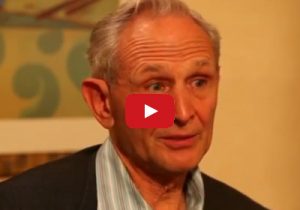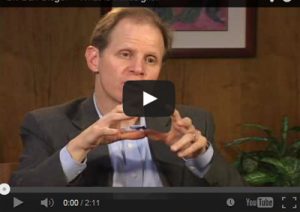VIDEO: Dr. Kirk Schneider – What is Awe?
Watch an exerpt from PsychAlive’s exclusive interview with Dr. Kirk Schneider.
Dr. Kirk Schneider talks about what awe is and how its meaning has shifted through history.
LF: How would you define awe?
KS: Well, I define it as the humility and wonder or sense of adventure toward living. I mean, awe has been defined in different ways historically. In the old days, ancient days, it used to be seen more in association with dread and trembling, you know, before natural phenomena that people didn’t understand, you know – earthquakes or thunder, god.
But over time and maybe as people have evolved, it came to been seen as a kind of a mixed sentiment. That it involved this, you know, “mysterium tremendum” as Rudolph Otto put it in his book, Idea of the Holy, this shaking, quailing sense of the awesome god or thunder storm to mysterium tremendum and fascinating.
So again, it’s that movement from paralyzing terror to sense of intrigue to an actual sense of wonder and fascination. And that mixture, I believe, is one of the most beautiful transcendental kinds of dimensions that we can embrace as human beings. Because it’s not just sweet and saccharine, you know, like some of the transcendental movements had leaned toward. And it’s not all doom and gloom.
But it’s really, it’s a sense of, again, fully engaging, participating in the life experience, sometimes captured in a moment of, let’s say, a love connection or an amazing mountain scape, great film or great book. But I believe that to more fully tap this dimension it really should be a lifetime process of experiencing this sense of humility and wonder, adventure at every moment if one is able — at least that’s the challenge, it seems to me. It’s, it’s really a powerful way of lifting us out of the narrow identifications that we get into in living.
And we certainly see this with our clients constantly. You know, the negative judgments, the judgments that we’re ugly or we’re too fat or we’re too slow or we’re not good in a sport; so many different judgments that we deal with today. And partly, I think, because of our sort of ‘high tech efficiency model for living’ world, it doesn’t allow for, you know, a larger experience of life.
And so the sense of awe, really, it takes us beyond all that. In some way, it takes us beyond all these human judgments. I’m not saying that those aren’t important. But they’re part of a much greater context and if you can connect with existence, broadly speaking, where’s the judgment there? You know, there’s a kind of fullness to that connection. There’s a fullness that Victor Frankl spoke about in Man’s Search for Meaning. When he was able to connect with scenes of his family picnicking in the sunlight in the midst of this, you know, a horrible and depraved death camp, or watching the Bavarian mountains as he’s sitting on a transport train going to Auschwitz.
It’s that capacity that we rarely use, that we all have. I mean, in many ways, I believe it’s a wonderful antidote to depression. And again, it’s not a, it’s not a saccharine antidote. It’s… acknowledging that there’s sadness, there’s tragedy, but it’s also recognizing that there’s so much more and we’re so much more.
So to me it’s a beautiful transcendental term and I’m trying as much as I can to, you know, to keep it alive in my life. It’s very hard in our culture to do that. Because we get so weighed down.
The sense of awe requires pause, requires time. When do we have time in this culture, to slow down? How do you appreciate things without being able to slow down some? How do we appreciate this moment, you know, fully, unless we take some time to realize the amazement of what we’re doing, what we’re probing, inquiring into, discovering together. So time, with all our hand held devices, all our high tech wizardry … we don’t have that time, we don’t make that time nearly enough.
LF: We don’t even look up to see the beauty as we’re driving, hardly.
KS: That’s right. How much do we check in with that? You know, there is that kind of trite old adage about smell the roses but there’s a lot of power and depth to that. It’s much more than just stop and smell the roses. We’re talking about something that can turn somebody’s life around, in my view. I feel like it’s helped to turn my life around and I’ve worked with people whose lives have been radically transformed by a sense of awe.
Tags: personal growth, self-esteem, video









Leave a Reply